
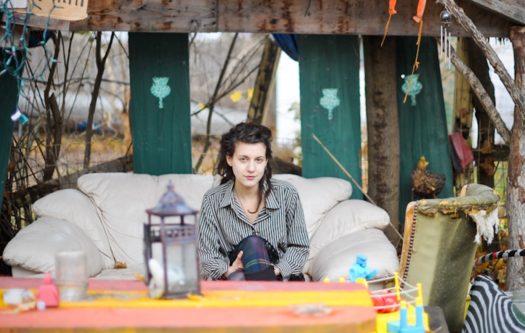
“Day of the Dead” is as much a short story as a song. And like many good short story writers, Hana Zara offers enough evocative details to sketch a few narrative outlines while leaving much of the specifics to the imagination. Continue reading »
wordpress-seo domain was triggered too early. This is usually an indicator for some code in the plugin or theme running too early. Translations should be loaded at the init action or later. Please see Debugging in WordPress for more information. (This message was added in version 6.7.0.) in /var/www/wp-includes/functions.php on line 6114

“Day of the Dead” is as much a short story as a song. And like many good short story writers, Hana Zara offers enough evocative details to sketch a few narrative outlines while leaving much of the specifics to the imagination. Continue reading »


Greil Marcus first coined the term “the old weird America” to describe the strange sounds on Harry Smith’s Anthology of American Folk Music collection. He connected those ’20s and ’30s folk and blues recordings to Bob Dylan and The Band’s “basement tapes,” which drew these dawn-of-recording-technology sounds and songs into the pastoral country-rock 1960s. Continue reading »
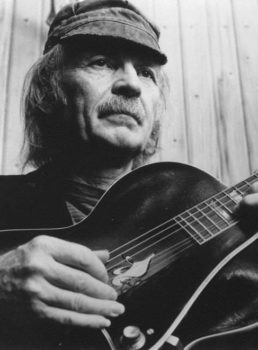
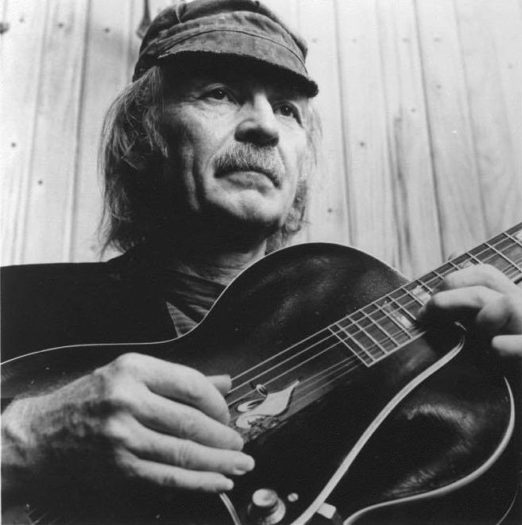
Michael Hurley is the sort of artist who inspires memorable descriptors. He’s been called “a vestige of the old, weird America” by the Boston Globe,” an “old-timey existentialist” by Robert Christgau, and “folk’s Boo Radley” by Pitchfork. My favorite, though, comes from roots-music magazine No Depression: “a crazy backwoods Vermont folkie, singing about werewolves and maids, drinking weasel piss, and enduring sausage farts.”
Hurley did not start out a “Vermont folkie” though. A lifelong traveler, he lived in California, Florida, New Orleans, Mexico, New York, Philadelphia, New Jersey, and Boston, before moving to Vermont in 1967 at age 25 – probably some other place I missed too. He remained a moving target even once he was in the state; he estimates he lived in 35 different towns in his two decades as a Vermonter (he dubs his strip of central Vermont “the insanity belt”). Hurley stayed in Vermont, but he certainly never settled.
The music he recorded and released in those 35 towns stands among his greatest, and his weirdest. There are songs about pork chops and hula hooping. There’s a song where he spents much of the time imitating a crow’s call. There are two different songs about monkeys, and one song about a werewolf that he recorded twice.
Hurley’s Vermont story is almost as strange and wondrous as Hurley’s Vermont songs, so we’re going to dive into each. Take a deep breath. It’s going to get weird. Continue reading »
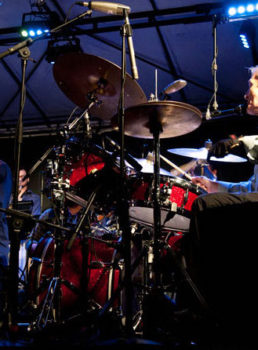
Classic Vermont Albums digs up great records from Vermont’s musical past.
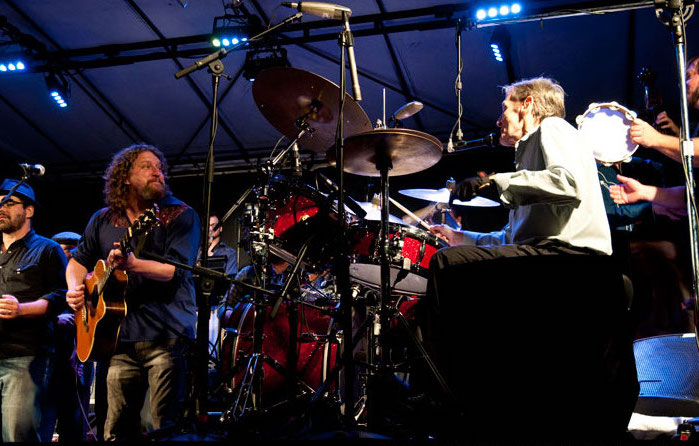
Bow Thayer’s Wikipedia page reads like a who’s-who of New England’s rock and roots scene over the past 25 years. His first Boston-based band Seven League Boots shared bills with Fugazi and Beck. When that band broke up, his new trio Still Home toured with Pearl Jam, who opened for them! “We didn’t even know who they were – nobody knew who they were,” Thayer told Mountain Times last month.
As the 1990s progressed, Thayer moved away from grunge (as did the rest of the country) and towards Americana and bluegrass, swapping cargo shorts and headbanging for slide guitar and banjo. He cycled through a few bands in that mold – Elbow, Jethro, The Benders, all popular in the New England area – before finally releasing the first album under his own name in 2004. A tight alt-country songwriter had by this point fully replaced the grunge guitarist, complete with mandolin flourishes and references to rivers and conifer trees (literal roots music, in that case). His musical touchstones moved from Nirvana to The Band – though, frankly, he loved the Band even when he was touring with Pearl Jam.
“I was a big fan of the Band,” Thayer says today. “During the eighties I was uninspired by the plastic and over-processed music coming through the airwaves. The Band was accessible and still playing around the area where I grew up. I think I used the lyric to ‘Life Is a Carnival’ as a senior quote in my high school yearbook.” Continue reading »
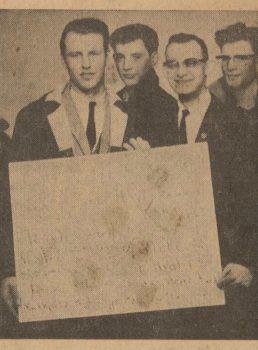
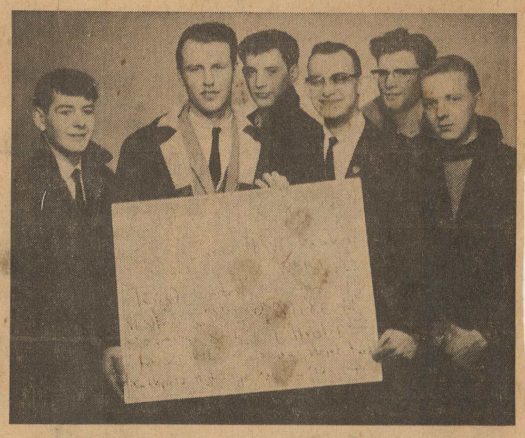
The only surviving photo of early Mike and the Ravens. L-R: Peter Young, Mike Brassard,
Steve Blodgett, Northfield town chairman Earl Rinker, Bo Blodgett, Eddie Jones
Late one Saturday night in 1962, the window of the Community Church in Stowe, Vermont creaked open. Three teenagers clamored through, dragging a box behind them. They climbed up to the church steeple, which contained the building’s sound system. Every day at noon it blanketed the town with a recording of tolling bells (despite a bell tower, the church did not have any real bells).
The teenagers opened their box and slipped a different recording out of its sleeve, a vinyl set of covers of the latest frat-rock hits: “Get a Job” by The Silhouettes, “The Stroll” by the Diamonds, and a handful more. They removed the tolling-bells record, put in their rock album, and pressed play.
They say the rock and roll woke up people as far as six miles away. The boys scurried home in the darkness as Bill Justis’s twangy “Raunchy” filled the streets.
Stowe being a small town, this prank did not prove to be the unsolved crime of the century. When the ringleader’s mother heard about it the next morning, she immediately pegged her son as the culprit. He was promptly arrested and forced to go back to school, breaking up his band. Continue reading »